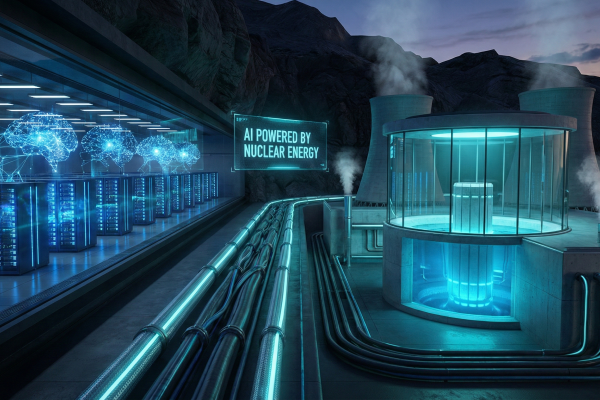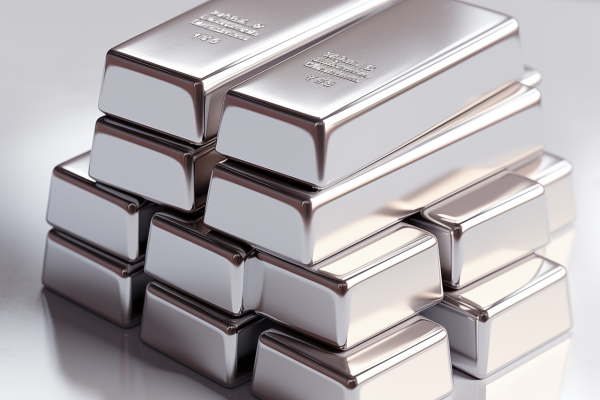June 22nd, 2023 | 08:45 CEST
First Phosphate, Mercedes-Benz, BYD - 1,500 km range through battery revolution
Until now, solid-state batteries were considered too expensive for electric mobility and could be recharged much less often than today's lithium-ion batteries. Now, thanks to a new technology, car manufacturer Toyota has developed a battery that can be recharged within 10 minutes and has a range of up to 1,500 km. This instantly puts Toyota's electric vehicles in the spotlight. Until now, the Company has been a niche player in the electric car market and has been more successful with hybrid vehicles. Today we look at First Phosphate, which aims to supply phosphate for lithium iron phosphate (LFP) batteries, and we finish by looking at two car manufacturers.
time to read: 4 minutes
|
Author:
Armin Schulz
ISIN:
FIRST PHOSPHATE CORP | CA33611D1033 , MERCEDES-BENZ GROUP AG | DE0007100000 , BYD CO. LTD H YC 1 | CNE100000296
Table of contents:

"[...] We know exactly what we are doing and are implementing what we consider to be a proven technology in an industrially applicable and scalable way. [...]" Uwe Ahrens, Director, Altech Advanced Materials AG
Author
Armin Schulz
Born in Mönchengladbach, he studied business administration in the Netherlands. In the course of his studies he came into contact with the stock exchange for the first time. He has more than 25 years of experience in stock market business.
Tag cloud
Shares cloud
First Phosphate - Pilot plant underway
Currently, the lithium iron phosphate battery is the most powerful and safest in the automotive industry. BYD, Mercedes-Benz, Ford, Tesla and others already rely on this type of battery or plan to use it in the future. Accordingly, demand will increase strongly in the future. The problem lies in the phosphate deposits, 95% of which are found in sedimentary rock containing heavy metals. Clean and battery-grade phosphoric acid is, therefore, difficult to produce. First Phosphate owns more than 1,500 sq km of properties where the cleanest phosphate rock can be found. This allows the Company to focus on the extraction and purification of phosphate for the production of active cathode material for the battery industry.
On June 5, the Company announced the latest results from its winter drilling program, which involved drilling 20 holes totalling 4,274 m. Two main zones were discovered, the northern zone being 375 m long and at least 60 m thick. The southern zone is approximately 1,500 m long and has a thickness of 100 m. Phosphate was detected in each borehole. The phosphate content ranged from 2.59% to 9.99%. In general, the deposits can be mined in low-cost open-pit mining. On June 19, the pilot plant for the production of phosphate concentrate was put into operation. Test results so far showed a 91.4% recovery rate. A total of 900 kg of concentrate with a phosphate content of 40.2% has already been produced.
The further processing of the material is done by the partners of First Phosphate. Prayon takes over the production of purified phosphoric acid in LFP quality. Hydro Quebec is responsible for the production of cathode-active material for the LFPs. The entire production runs according to ESG standards. In addition to phosphate, iron, iron sulphate, and titanium can also be recovered via secondary recovery. After the recent good results on the Bégin-Lamarche property, drilling will continue there in the next quarter. The share has been running sideways since the beginning of May and is currently trading at CAD 0.445. 70% of all shares are owned by management, insiders, partners, advisors, friends, and family.
Mercedes-Benz - Cost savings in the van division
Mercedes-Benz CEO Ola Källenius had already announced in 2021 that the group would rely on LFP batteries from 2024. Recently, at a presentation in the US, the electric CLA, set to be released in 2024, was showcased. The electric vehicle is expected to have a range of 640 km, and according to CTO Markus Schäfer, there will also be a battery version with a range of 850 km. The Company also wants to deliver every 2nd vehicle in the van segment as an electric vehicle by 2030. The first-quarter figures already demonstrated a strong performance in this area.
Nevertheless, costs are to be reduced here, said Mathias Geisen, head of the division. By 2025, the Company wants to save about 20% of its fixed costs, keeping the Company competitive in the long run. Otherwise, the Stuttgart-based company has increasingly concentrated on the premium segment. Among other things, this is due to the delivery problems with semiconductors. Margins are higher there. This could be clearly seen in the EBIT margin of the quarterly figures, which was 14.7%. By way of comparison, Volkswagen is currently only at 3%.
In the 1st quarter, the Stuttgart company sold 89% more electric cars than in the previous year. That means the segment is growing faster than the premium segment. It remains to be seen to what extent the economic slowdown in Germany will affect the carmaker. Analysts are unanimously enthusiastic about the share and have issued 8 buy recommendations since May. The price targets were between EUR 75.00 and EUR 115.00. The figures for the 2nd quarter are to be published on July 27.
BYD - Scandal around the figures?
BYD, the industry leader in electric cars, also relies on LFP batteries. However, the Company's Blade batteries are designed to be particularly space-saving and thus achieve a better energy density and a longer range. At the same time, the cells are safer and have even successfully passed the nail penetration test. One battery lasts for more than 5,000 charging cycles. Currently, they are considered the leading battery in electric cars. Even Tesla is said to buy and install the batteries in their models.
Currently, the Company has to deal with a video by a YouTuber who claims that BYD's sales could be fake. As proof, a video shows 1,000 BYD vehicles from 2021 standing in a field. The vehicles are registered but may never have found a buyer. In order to receive subsidies, companies in China need a certain number of vehicles sold. If the vehicles are registered, they are considered sold.
Experts argue about how to evaluate these registrations. What is clear is that it is a disaster from an environmental point of view. But the carmaker has also delivered 1,000s of vehicles to international customers. Was Warren Buffet aware of this when he decided to sell his shares? Berkshire has, in any case, significantly reduced its holdings. Nevertheless, the share has been soaring since mid-March and has hardly been affected by the video. Currently, one share costs EUR 31.02. Investors should keep a close eye on the share and set a stop-loss.
The battle for the best vehicle battery is in full swing. Toyota's new technology has yet to go into production. The fact is that LFP batteries are on the rise, so phosphate is desperately needed. This is where First Phosphate can score with its pure deposits. The entire production chain is covered by its partners. Mercedes Benz is making good progress with the sale of its electric vehicles. In the future, LFP batteries will also be installed. BYD, the industry leader with its Blade batteries, which are also LFP batteries, is facing a possible scandal. Investors should pay attention here.
Conflict of interest
Pursuant to §85 of the German Securities Trading Act (WpHG), we point out that Apaton Finance GmbH as well as partners, authors or employees of Apaton Finance GmbH (hereinafter referred to as "Relevant Persons") may hold shares or other financial instruments of the aforementioned companies in the future or may bet on rising or falling prices and thus a conflict of interest may arise in the future. The Relevant Persons reserve the right to buy or sell shares or other financial instruments of the Company at any time (hereinafter each a "Transaction"). Transactions may, under certain circumstances, influence the respective price of the shares or other financial instruments of the Company.
In addition, Apaton Finance GmbH is active in the context of the preparation and publication of the reporting in paid contractual relationships.
For this reason, there is a concrete conflict of interest.
The above information on existing conflicts of interest applies to all types and forms of publication used by Apaton Finance GmbH for publications on companies.
Risk notice
Apaton Finance GmbH offers editors, agencies and companies the opportunity to publish commentaries, interviews, summaries, news and the like on news.financial. These contents are exclusively for the information of the readers and do not represent any call to action or recommendations, neither explicitly nor implicitly they are to be understood as an assurance of possible price developments. The contents do not replace individual expert investment advice and do not constitute an offer to sell the discussed share(s) or other financial instruments, nor an invitation to buy or sell such.
The content is expressly not a financial analysis, but a journalistic or advertising text. Readers or users who make investment decisions or carry out transactions on the basis of the information provided here do so entirely at their own risk. No contractual relationship is established between Apaton Finance GmbH and its readers or the users of its offers, as our information only refers to the company and not to the investment decision of the reader or user.
The acquisition of financial instruments involves high risks, which can lead to the total loss of the invested capital. The information published by Apaton Finance GmbH and its authors is based on careful research. Nevertheless, no liability is assumed for financial losses or a content-related guarantee for the topicality, correctness, appropriateness and completeness of the content provided here. Please also note our Terms of use.




